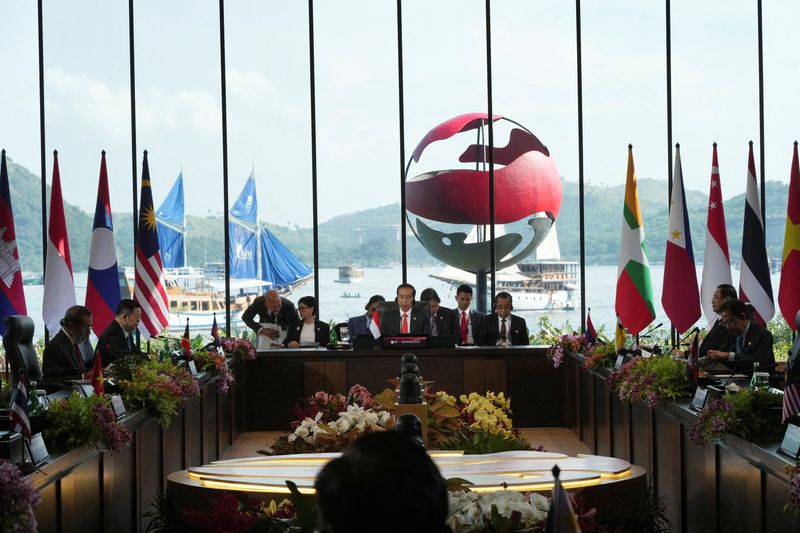Southeast Asian leaders pledge crackdown on human traffickers online scams
2023.05.10 17:02

© Reuters. Indonesia President Joko Widodo attends the 42nd ASEAN Summit in Labuan Bajo, East Nusa Tenggara province, Indonesia, May 10, 2023. Achmad Ibrahim/Pool via REUTERS
By Kate Lamb
LABUAN BAJO, Indonesia (Reuters) – Southeast Asian leaders pledged on Wednesday to crack down on online scams operated by human traffickers to prey on vulnerable job seekers, particularly in the poorest countries of the region.
Meeting in Indonesia for a summit of the Association of Southeast Asian Nations, the leaders called for a regional approach to combat human trafficking.
Issuing the first declaration by ASEAN on the danger of traffickers’ cyber scams, the leaders noted “the increasing abuse of technology in facilitating trafficking in persons in Southeast Asia and globally, proliferated through the use and abuse of social media and other online platforms”.
Lured by social media posts promising well-paid jobs in countries like Cambodia, Laos and Myanmar, thousands of people have become trapped in cyber scam operations, in some cases held captive and forced to defraud strangers online.
There has been a spike in cases of people enslaved in cyber scams, and more than 1,000 victims have been rescued just in recent days.
Indonesia’s foreign ministry said that 20 Indonesian citizens who had been trafficked to Myanmar as part of a cyber scam were repatriated last Sunday.
In a separate operation, officials in the Philippines said more than 1,000 people from across Asia were rescued in night raids last week. The victims were forced to work up to 18 hours a day in cryptocurrency scams, police said.
ASEAN’s efforts to combat human trafficking will include enhancing the capacity of law enforcement agencies to investigate, collect data, exchange information and conduct joint exercises, the declaration said.
Cambodia has emerged as a hotspot for cybercrime rings but networks, which civil society groups say are often linked to Chinese criminal gangs, have since expanded to countries such as Myanmar and Laos.
Experts say the trafficked captives are held in large compounds in converted casinos in Cambodia, and in special economic zones in Myanmar and Laos.








